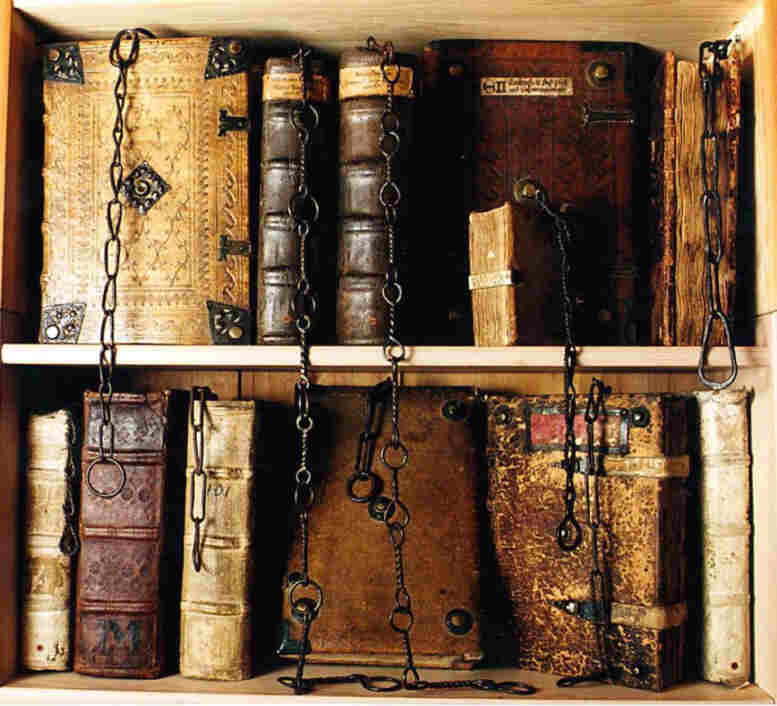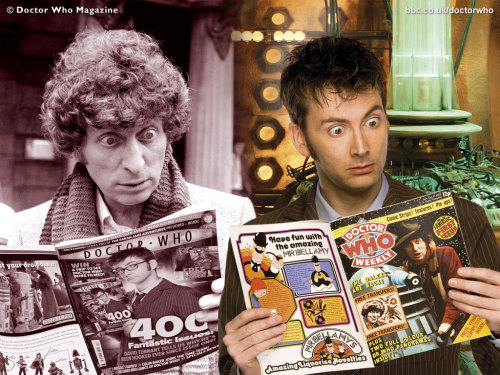As I am still buried in things both at the office and at home due to moving, here is a delightful photo to make up for my lack of writing (H/T Julie D.). Like Happy Catholic, I also admire Matt Damon.
"The librarian must be the librarian militant before he can be the librarian triumphant." -Melvil Dewey
28 August 2012
18 August 2012
"A backup isn't a backup if it's your only copy."
I recently had a hard drive fail, as it wont to happen at the busiest and most inconvenient times. After a couple days, an efficient technician, and a large hole in my wallet, everything is back up, running normally, and safe. This experience was much less traumatic than it could have been had I not had an established habit of regularly backing up my data.
I recently ran across this article regarding data storage safety. The author recounts a stressful close-call with hard drive failure:
I echo all this advice. If you don't have an external backup drive, get one. Nowadays, storage devices are very spacious and are relatively inexpensive for the security they provide. Ideally, backups should be stored in a different physical location from the source drive. That way, if one gets damaged, there is a greater chance that the other copy will survive unharmed and recoverable. I'd like to strongly emphasize that backing up must be a regular activity, like doing laundry, balancing the checkbook, or going to confession. Otherwise, you're more likely to end up with several weeks, months, etc. of lost work.
On a similar note, if you have not already done so, it is a good idea to take an inventory of just where all your data is on the web. Where do you have accounts? What are the usernames and passwords? How much data are you sharing, and when did you last use an account/service? Organizing all this information can help you mitigate personal data needlessly floating around cyberspace, and will make you more conscious of your information-sharing habits on the web.
It is important to think of managing personal digital assets and data in the same way as we care for other non-static organisms. More helpful resources for personal digital archiving from the Library of Congress can be found here.
I recently ran across this article regarding data storage safety. The author recounts a stressful close-call with hard drive failure:
"Last week, one of my son's friends lost a summer of work he'd done filming a documentary. It was a crucial college project for which he'd solicited and received considerable financial support via Kickstarter. He'd backed up months of footage garnered from extensive travel and interview to an external hard drive. Secure that he had a backup, he deleted the source data to gain more room on his Mac. It wasn't until the external hard drive failed that it dawned on him that a backup isn't a backup if it's your only copy."Luckily, for the student of the article, all the data was able to be recovered with a little forensics, but one cannot count on being so lucky if your hard drive unexpectedly fails. The author has a few very simple points of advice for safe backup practices as the school year begins once again:
- Backup regularly to a drive that won't be lost or damaged with the source
- Periodically confirm that what you backup is present and recoverable
- Never carry your backup media in the same backpack or bad as your computer.
I echo all this advice. If you don't have an external backup drive, get one. Nowadays, storage devices are very spacious and are relatively inexpensive for the security they provide. Ideally, backups should be stored in a different physical location from the source drive. That way, if one gets damaged, there is a greater chance that the other copy will survive unharmed and recoverable. I'd like to strongly emphasize that backing up must be a regular activity, like doing laundry, balancing the checkbook, or going to confession. Otherwise, you're more likely to end up with several weeks, months, etc. of lost work.
On a similar note, if you have not already done so, it is a good idea to take an inventory of just where all your data is on the web. Where do you have accounts? What are the usernames and passwords? How much data are you sharing, and when did you last use an account/service? Organizing all this information can help you mitigate personal data needlessly floating around cyberspace, and will make you more conscious of your information-sharing habits on the web.
It is important to think of managing personal digital assets and data in the same way as we care for other non-static organisms. More helpful resources for personal digital archiving from the Library of Congress can be found here.
13 August 2012
Who is John Galt?
Since the announcement of Paul Ryan as Mitt Romney's running mate late last week, the ever-blazing fire of political hysteria has had a fresh burst of fuel. Luckily, we will not discuss politics on this blog. We shall leave that unpleasant pastime to other blogging heads. But what is pressing my buttons is all the hysteria that is being generated about Paul Ryan's relationship with Randian literature. I know very little about the extent and exact nature of the influence of Ayn's canon on Ryan's politics. I have sampled a few anecdotes. Far and wide, people are crying fowl that Ryan has demonstrated positive interest in Rand's works. And then denying their influence on him-or not?
Now really, I could read as much as my puny litter grey matter could handle and I still wouldn't know up from down about the whole truth of the interior life of this country's dear politicians. But suffice it to say, I've already become annoyed at some who have severely recoiled at Ryan's association with Rand, as if reading a book and finding it fascinating and insightful somehow generates incurable Objectivist cooties. Ryan certainly got some measure of excitement from Rand, but his interest does not appear to be fanatical. I don't deny that Rand's Objectivism is downright frightening, but I don't think Ryan's significant engagement with her writing should necessarily alarm folks. I may stand corrected as I do my duty and reluctantly listen to more political banter as this election season progresses, but I think the general public is wrong to use Ryan's Rand connection to impulsively label him an enemy of the people (IMH non-political opinion).
| Really, Atlas is just holding his head in his hands and weeping about the modern state of political discourse. |
Pope Benedict's Dream Job
So late last week we got a taste of what the Holy Father would really prefer to be doing. Forget fostering Christian unity and writing encyclicals. The man just wants to be a librarian.
And Archbishop Jean-Louis Brugues, Librarian of the Apostolic Library and Archivist of the Vatican Secret Archives, had this to say of the role of the library for the Church: "It must be like the keel of the ship, which is not seen. In fact, few people are able to see it. So it is with the library: there are few, apart from specialists...who understand the amount of work that takes place in the Library and Archives.
"It is really theses institutions that allow the barque of the Church to stay afloat and move forward...If it were not for the keel, the ship would be subjected to doctrinal winds of any nature or fashions. It is this keel which gives depth to the catechetical work of the Church and her teaching."
09 August 2012
St. Lawrence Day!
Tomorrow, August 10th, is the feast of St. Lawrence of Rome, deacon, really stellar martyr, and patron of, amongst other things, librarians. When once asked to produce the treasures of the Church, St. Lawrence is said (by St. Ambrose, no less) to have gathered all the poor together and presented them as the true riches to be sought.
 |
| Sixtus ordains St. Lawrence |
St. Lawrence was brutally martyred by being roasted alive. Legend has it that he possessed so much fortitude and good humor that, after being thoroughly toasted on one side, he alerted his executioners: "I am done on this side-you can turn me over now!" I have a feeling he did not want his martyrdom to be 'over-easy'.
This makes me wary of the possibility that I may share this fate with a patron of my profession. St. Lawrence's patronage of cooking and comedy is sensible, but it is at least a little ironic that a man who was burned alive now serves as a patron for a profession for which fire is highly dreaded. Perhaps a divinely guided pre-meditation to the cautionary tone of Fahrenheit 451?
In addition to St. Lawrence, Sts. Jerome and Catherine of Alexandria have been claimed as patron saints of libraries and archives. Triple the opportunities to celebrate. Let's hope that nobody calls for a roasting of librarians anytime soon.
 |
| Martyrdom of St. Lawrence, Valentin de Boulogne |
08 August 2012
07 August 2012
Reading is My Drug
"It's a dangerous business, Frodo, going out your door. You step onto the road, and if you don't keep your feet, there's no knowing where you might be swept off to."
-J.R.R. Tolkien, The Lord of the Rings
But more and more recently, I have been noticing just how easy it is to become a slave to reading. It's not just for books anymore. Reading material is everywhere these days-in our books, on our phones, on billboards, in the doctor's waiting room, and our computer screens. I am generally a voracious reader under normal conditions, but when stress is added to that mix, I am especially susceptible to reader's binge. Somehow, I have still not perfectly mastered control over the backwards instinctual logic that attempts to remedy stress and excessive mental preoccupations with adding yet more preoccupations to the mix. In the midst of perusing too thoroughly the latest in the Catholic blogosphere, my Twitter feed, the newly arrived issues of professional association publications, and the rest of todays news, and eyeing the books on my tea-tray, I had to stop myself.
 |
| Sometimes we are more chained too books than we realize. |
01 August 2012
Nathan Fillion + Childhood Literacy
I've got about ten odd posts that have been floating around my gray matter for weeks, but time and space have not been aplenty. Thus, I leave you with this gem:
While I think literacy projects are great-as-can-be, I was a little disappointed at their official booklist, of which I recognized maybe 3% of the titles. This is probably just a sure fire re-confirmation that I am aging and not a children's/YA specialist, but I at least expected Huck Finn and some of the other classics to appear in non-graphic novel versions. I understand that they are targeting youth from mainly 'at-risk' communities, but these kids still deserve better. At least Twilight is nowhere to be found.
Subscribe to:
Comments (Atom)





